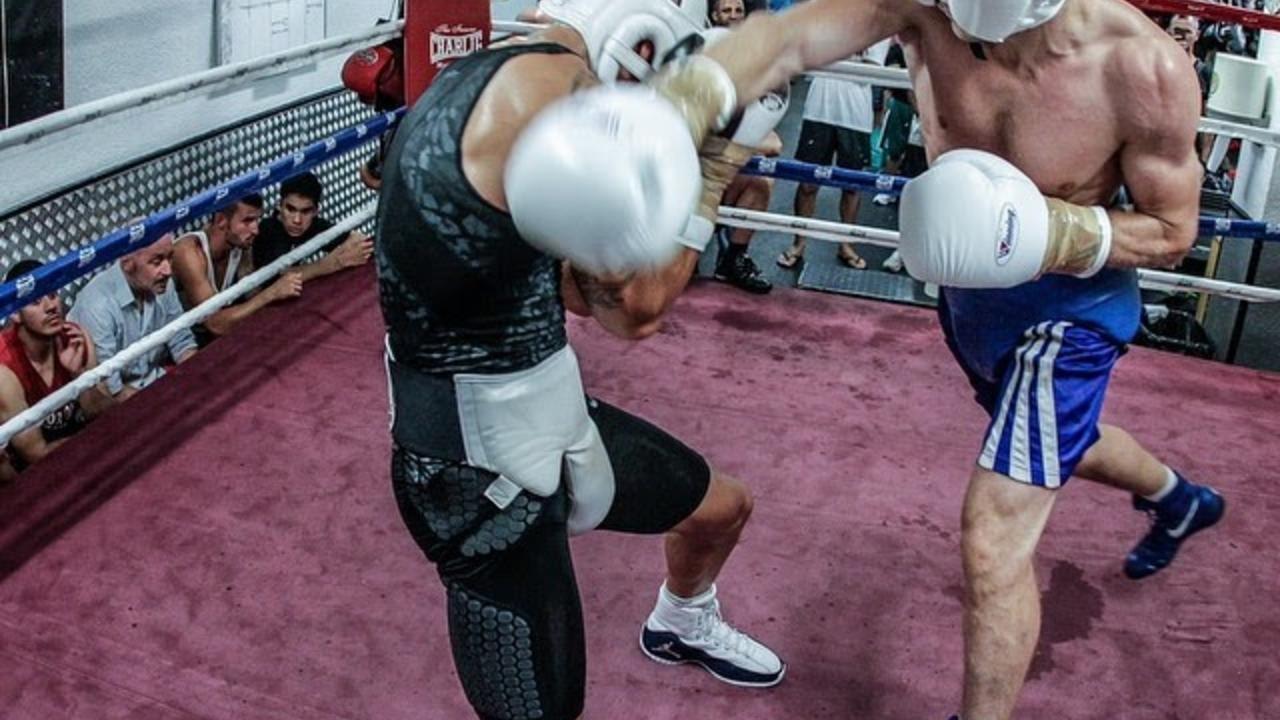Is Hard Sparring Good & Does It Make You A Better Fighter?
Nov 15, 2019
Running, bag work, pad work, skipping, shadow boxing, strength and conditioning are all important aspects of a boxer's training. However, nothing quite simulates a real boxing match like sparring. To add to that, nothing will simulate competition quite like hard sparring, after all your opponent on the night will be throwing punches as hard as they possibly can and trying to score a knockout. Therefore, it makes sense to practice this is in the gym, no?
My answer would in fact be no, though this is how many top professional and amateur fighters train, week in, week out.
When it comes to hard, all out sparring, you are effectively having fights in the gym, some as much as 3-4 fights per week. Though head guards and heavier gloves (more protection) are being used, the dangers of taking heavy punishment remains the same. Continued blows to the head (punishment) in the ring, whether in sparring or fights, are going to shorten a fighter’s career and potentially their life. With this in mind, why would you continue to practice hard sparring regularly?
The idea of sparring, is to further develop your skills, timing, judgement of distance and practice your defensive skills and counterpunches. If the threat of a bomb (heavy punch) is in front of you, naturally, there is a big reluctance to try new skills. For example, if my sparring partner was throwing big right hands at me, I would not be willing to practice slipping the jab and throwing the left hook to the body….because I do not want to get hit by that right hand! In this scenario, I’m going to stick to what I know already works and stay out the way of that right, I’m certainly not going to try anything new. If me and my sparring partner are working together in a controlled manner, not loading up and trying to kill each other, I’m going to be a lot more willing to take a risk and try and slip that jab, and add a new skill to my repertoire.
So other than making an already very hard sport even harder, hard sparring sessions are not going to help develop a boxer’s skills. Technical, lighter sparring working on specific movements and skills are going to enhance your ability and confidence and prevent a lot of unnecessary damage, prolonging the career and health of fighters. Bernard Hopkins, famous for his longevity and competing at the highest level throughout his forties and into his fifties, breaks it down perfectly.
Hopkins makes some great points regrading the lifestyle of a boxer, forward to 2 minutes in for views on the longevity of a boxer.
One of the finest boxers of recent times (arguably of all time) Floyd Mayweather Jr demonstrated his sparring methods when I visited his gym. The gym is famed for the ‘Doghouse’ sparring sessions, where boxers will spar continuously (one, sometimes very long round) until someone gives up. Upon arriving at the gym, Doghouse rules were not in place but what was clear to see was two young fighters ‘going at it’ in sparring, very hard indeed. After being surrounded by boxers in the gym asking if I want ‘work’ (sparring) today, I knew I was set for 2 weeks of hard sparring. Ultimately that’s what I went there for, it’s what I got and it was a fantastic experience that improved me as a boxer. But after two weeks I went back to my normal training routine and did not continue to spar hard so frequently. Mayweather himself was a great example. Whilst the other fighters in the gym were going to war with each other day in, day out, the sparring sessions demonstrated by Floyd were not the same. I was lucky enough to watch some of this sparring, and it was clear to see Mayweather’s attitude in sparring was to not get hit and not to try and beat the life out of his opponent, rather to showcase his skills and movement…..and occasionally trash talk his opponent.
Checkout this video for an example of how the sparring goes down in the ‘Doghouse’.
The Mayweather Boxing Gym is filled with fighters trying to impress Floyd and make a name for themselves in the Doghouse.
Make no mistake, hard sparring IS necessary for those who are planning to compete, whether its white collar, amateur or professional. If you do not experience getting hit it in the gym it’s impossible to know how you will react on fight night, BUT the frequency of these sessions and sparring partners (ie not opponents who are a lot heavier than you) used is something that needs to be regulated. If not by your coach then by you the boxer, not only to develop your skills but to protect your health.
Lightning’ Lloyd Ellett
Stay connected with news and updates!
Join our mailing list to receive the latest news and updates from our team.
Don't worry, your information will not be shared.


